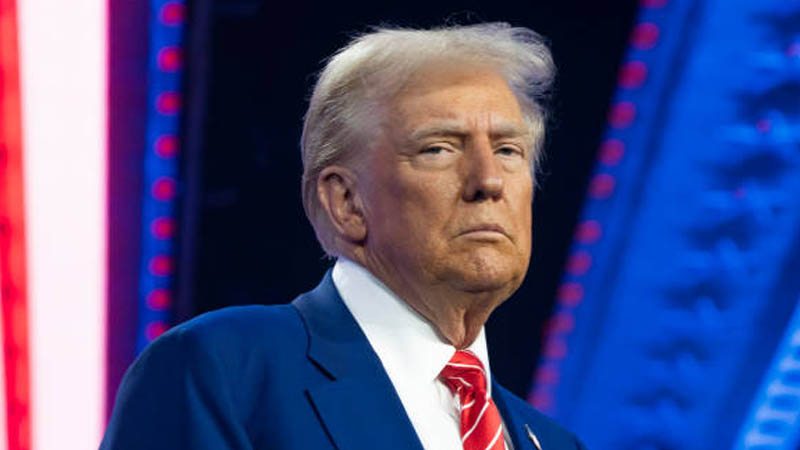Wisconsin GOP Candidate Blames Third-Party ‘Plant’ for Senate Race Loss

(Mike Roemer / Associated Press)
Wisconsin Senate candidate Eric Hovde has yet to concede his loss to Sen. Tammy Baldwin (D-WI) and is placing the blame on a third-party candidate he claims siphoned crucial votes. Hovde argues that America First candidate Thomas Leager, who garnered a vote total close to the margin of his loss, effectively handed the win to Baldwin due to alleged Democratic backing of Leager’s campaign.
“We’re certainly disappointed that the Democrats’ effort to siphon votes with a fraudulent candidate had a significant impact on the race, with those votes making up more than the entire margin of the race right now,” Hovde said in a press release on Wednesday morning. He added that his team would continue monitoring returns to ensure every vote was counted, as reported by NOTUS.
The narrow margin between Baldwin and Hovde has become the center of controversy. As of Thursday morning, Baldwin led Hovde by 8,958 votes, while Leager received 28,717 votes. Hovde and some Republican leaders in Wisconsin have suggested that Democrats propped up Leager, a former gun rights lobbyist, to divert conservative votes. Leager has also claimed to be an unindicted co-conspirator in the 2020 plot to kidnap Michigan Gov. Gretchen Whitmer, which has added fuel to the controversy.
In a further twist, Leager told reporters he was approached by operatives from the Patriots Run Project to enter the race. Meanwhile, the Associated Press reported that Democratic campaign donations were traced to Leager’s and other third-party candidates’ campaigns, allegedly part of a strategy to dilute Republican votes. Hovde has remained vocal, stating, “It’s unfortunate if the Democrats wouldn’t have put a plant, this probably would have been called some time ago. But you know what? It is what it is.”
Republican leaders have joined Hovde in casting blame on Leager’s third-party campaign. State Assembly Majority Leader Robin Vos and GOP State Assembly candidate Jim Piwowarczyk echoed Hovde’s allegations, citing Leager’s presence in the race as a decisive factor in Baldwin’s victory.
Democrats, however, dismissed the accusations outright. A Democratic strategist in Wisconsin responded to the claims by stating, “That is absurd. There are millions of reasons why Wisconsinites didn’t vote for Eric Hovde. Hovde should stop being a whiny baby and admit he lost this election. [Democrats] didn’t recruit a man who tried to kidnap Gov. Whitmer.” The strategist’s response reflects a broader view among Democrats that Hovde’s loss stemmed from his failure to connect with voters rather than interference from third-party candidates.
As Hovde and his supporters continue to scrutinize the election’s results, the controversy highlights ongoing tensions around third-party influence in tight races. Leager’s campaign—marked by his history as a gun rights lobbyist and alleged involvement in extremist plots—became an unusual talking point in the election’s final days, with Republicans alleging that his presence distorted the outcome in Baldwin’s favor.
With Baldwin’s victory nearly confirmed, Hovde’s stance has fueled discussions about the ethics of third-party influence and strategic support from major parties. His refusal to concede while pursuing potential irregularities underscores the broader issue of election integrity and vote-splitting tactics, which have increasingly come into focus in recent elections.


